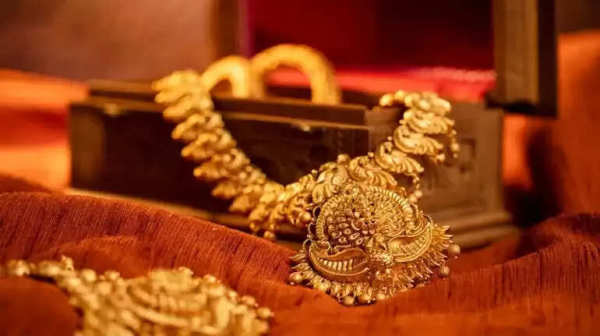
Gold holds a special place in Indian households, often passed down from one generation to another as a symbol of wealth and tradition. Parents gifting jewellery to their children is common, and many families preserve it as an heirloom. But when it comes to taxation, the question arises—does gold jewellery inherited from parents fall under the tax net?
According to the Income Tax Act, any gold jewellery received through inheritance—whether from parents or close relatives—is not taxable at the time of receiving it. Simply owning inherited jewellery does not attract any income tax or wealth tax. In fact, wealth tax on gold was abolished by the government in 2015, so taxpayers do not have to worry about an annual levy.
However, experts caution that keeping proper records of inheritance is crucial. If you receive gold through a will, gift deed, or direct transfer from parents, maintaining documentation helps in answering future queries. Authorities may ask for proof of ownership during loan applications, financial disclosures, or in case you decide to sell the jewellery.
The real tax implication surfaces only when inherited gold jewellery is sold. In such cases, the transaction falls under Capital Gains Tax. The calculation of capital gains depends on two important factors:
Cost of Acquisition – This refers to the original purchase price of the jewellery. If your parents bought the gold before April 1, 2001, you are allowed to consider its fair market value as on that date for calculation.
Period of Holding – If the jewellery is sold within 36 months of acquisition, it is treated as short-term capital gain and taxed as per your income slab. If sold after 36 months, it qualifies as long-term capital gain, which is taxed at 20% with indexation benefits.
Indexation allows taxpayers to adjust the purchase cost of gold based on inflation, thereby lowering taxable gains. For example, if your parents bought jewellery many years ago, the indexed cost after applying the inflation index will be much higher, reducing your overall tax burden when you sell.
While inheritance is tax-free, gold jewellery received as a gift from someone other than parents or close relatives may attract tax. If the value of such gifted jewellery exceeds ₹50,000, it is treated as taxable income in your hands under “Income from Other Sources.” This makes documentation all the more important to establish whether the jewellery is inherited or gifted.
Gold is often transferred informally within families, but experts recommend keeping proper records such as:
Gift deeds or wills
Purchase bills or valuation certificates
Bank transaction details in case of purchase
These documents not only help during income tax scrutiny but also during property or loan transactions where proof of asset ownership is required.
In India, gold jewellery is more than just an investment—it is a part of cultural heritage. Families often pass it on through weddings, festivals, and inheritance. Over time, jewellery accumulates across generations, and having a clear record ensures smooth transfer of assets without legal or tax complications.
Inherited gold jewellery from parents or close relatives is not taxable at the time of inheritance.
Tax liability arises only when you sell it, and capital gains tax rules apply.
Indexation can significantly reduce long-term tax liability.
Gifts above ₹50,000 from non-relatives are taxable as income.
In short, if you inherit jewellery, there is no immediate tax burden. But when you decide to sell, understanding capital gains rules and keeping proper documentation will save you from unexpected notices and penalties.